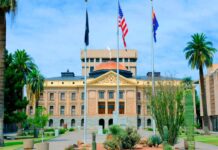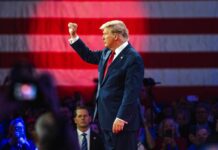
Despite the supermarket chain’s well-established reputation for catering to leftists, Whole Foods sparked some controversy when it implemented a ban on employees wearing divisive attire — particularly clothing that expresses support for the Black Lives Matter movement.
A multi-state class-action lawsuit in 2020 alleged that Whole Foods employees were fired and otherwise faced retaliation for donning face masks with a BLM logo, though the company challenged those assertions at the time.
“While we cannot comment on pending litigation, it is critical to clarify that no team members have been terminated for wearing Black Lives Matter face masks or apparel,” the statement read. “We have zero tolerance for retaliation at Whole Foods Market. We recognize, respect and take steps to ensure we do not impinge on employees’ legal rights.”
The 1st U.S. Circuit Court of Appeals reached a unanimous decision last year that the plaintiffs did not satisfy their burden of proof in claiming that the Amazon-owned chain’s policy was discriminatory or violated the Civil Rights Act of 1964.
Whole Foods scored another victory this week when Administrative Law Judge Ariel Sotolongo of the National Labor Relations Board found that the company was within its rights to prohibit employees from wearing politically divisive apparel.
“The fact that BLM may be a movement of great significance to African Americans, and that its goals are valid, does not mean that a rule prohibiting the displaying of such message at work is ‘racist’ as some employees implied,” the judge determined.
Whole Foods Market workers who insisted on wearing Black Lives Matter gear in 2020 were not shielded by workplace speech protections in their choice, a federal labor board judge has found. https://t.co/Nk96vIc3gW
— Bloomberg Law (@BLaw) December 22, 2023
It was unclear from available reports whether the NLRB general counsel will appeal the ruling.
Whole Foods founder John Mackey, who identifies as politically libertarian, has spoken out against corporations being pressured into embracing certain — typically left-leaning — ideologies. Last year, he took issue with the rise of the “environmental, social and governance” movement within the corporate world.
“ESG is basically not a management philosophy,” he argued. “They’re trying to force certain political values down the throats of all businesses, their own values, their own personal values that they believe should be done. So their own environmental values, their own values about diversity, race. Their own values about equality and equity. But mostly it’s about power.”


















